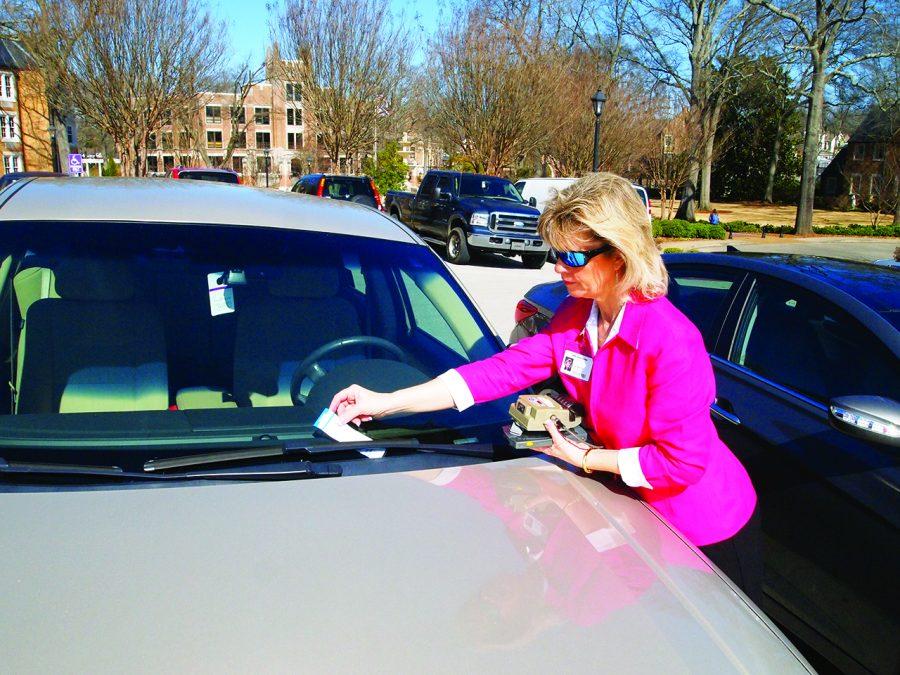Officials crack down on handicapped parking
February 21, 2013
UNA ADA Coordinator Lisa Reburn said she is putting her foot down when it comes to reprimanding violators of handicap parking.
With a price tag of $50 a ticket, students need to be aware of the facts, she said.
Reburn is now in charge of issuing tickets to students who illegally park in handicap spaces without a valid placard after UNA police officials gave her the authority to issue citations, she said. She said she circles campus randomly during the week and even on the weekends.
Reburn said she has heard every excuse in the book of why students, faculty and staff misuse handicapped spots and access lanes.
“People have told me they’re just running in, it was only for a few minutes, or it was their first time ever parking in the spot,” she said.
When students who utilize handicap parking began calling her and saying they missed class due to no open spaces, she said she knew something needed to change.
“People who can easily walk 200 extra yards to class instead of parking in handicapped spots deserve to get ticketed,” said Callie Henderson, UNA student. “I’m late for class, too, but I don’t take up parking spaces that are meant for other people. Whatever happened to good-hearted courtesy?”
Reburn said students should to be aware of what types of inconveniences they cause to students with disabilities.
“The giveaway sign of parking misuse is the emergency flashers,” Reburn said.
Reburn said she issued 19 tickets after only two rounds of circling campus. Students should be aware the university is unrelenting when it comes to upholding the law, she said.
The university is issuing one-time $50 tickets but will begin implementing the actual disability law, which states that the second offense is $200 and an attachment of community service and the third offense is $500, Reburn said.
The qualifications for a handicap placard are specific, she said.
“Individuals must not be able to walk 200 feet without assistance or without stopping to rest,” Reburn said.
This placard may encompass a variety of different disabilities and impairments, and students should know that not all disabilities could be seen from the outside.
“Also, students who are using a placard registered from someone else, whether it’s grandma, dad, aunt or grandpa, are committing a Class B Misdemeanor which is punishable by a $1,000 fine and six months in jail,” Reburn said.
Reburn said she is teaming with university police, and they will begin running placard ID numbers to see if they are legitimate.
Child development major Ashley Spurgeon said her visual impairment doesn’t require her to get a placard.
“My husband won’t let me get one, and he’s right,” she said. “Even though I can’t see, I can walk just fine.”
She said it was not right for students who do not have a disability to illegally park in the allotted handicap spaces.
This is an issue that every student could potentially be faced with.
“Accidents happen every day, and many of the students who utilize handicap parking were not born that way,” Reburn said.
Reburn said, contrary to many opinions, the ticketing is not a tactic to raise money for the university.
“Bottom line, this is not about making money,” Reburn said. “This is about consideration for others.”
She said she will continue to write tickets until justice for these students is served.
UNA’s parking facilities have a limited number of handicap spaces, Reburn said. These spaces are larger than regular ones, giving students with disabilities premium accessibility to get to class on time, she said.
For a complete list of the location of handicap spaces, the university has placed an ADA map on UNA’s website.











